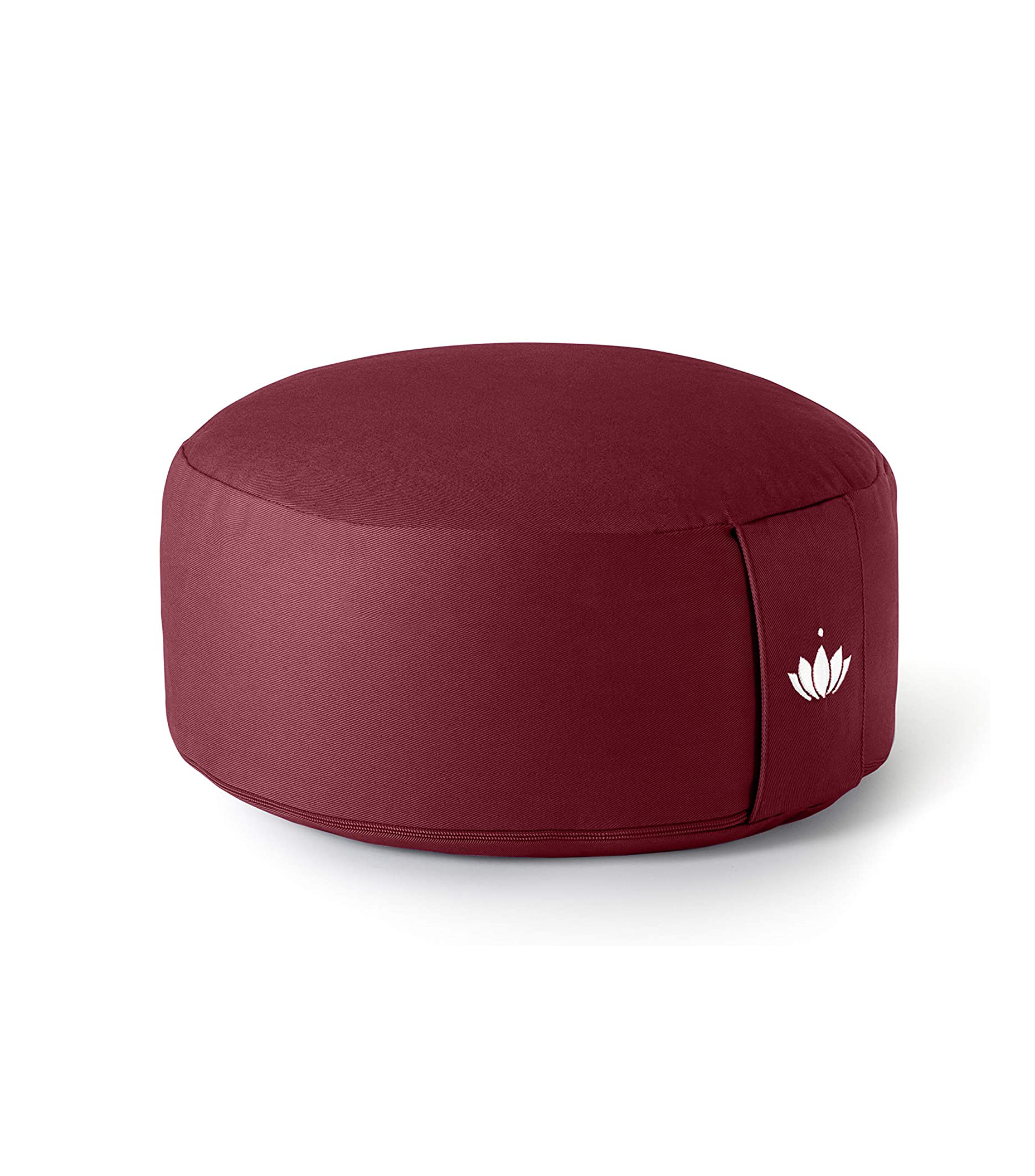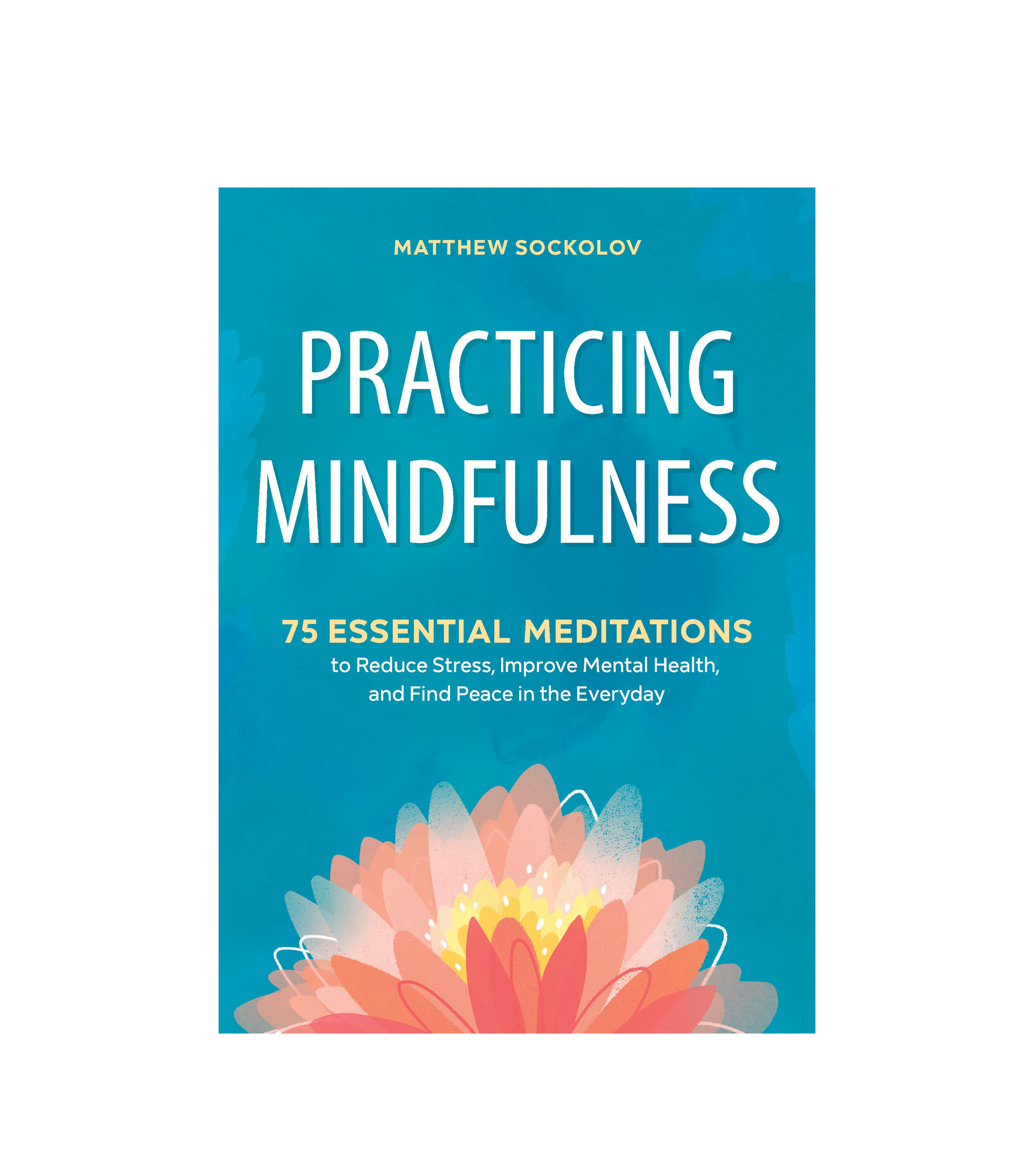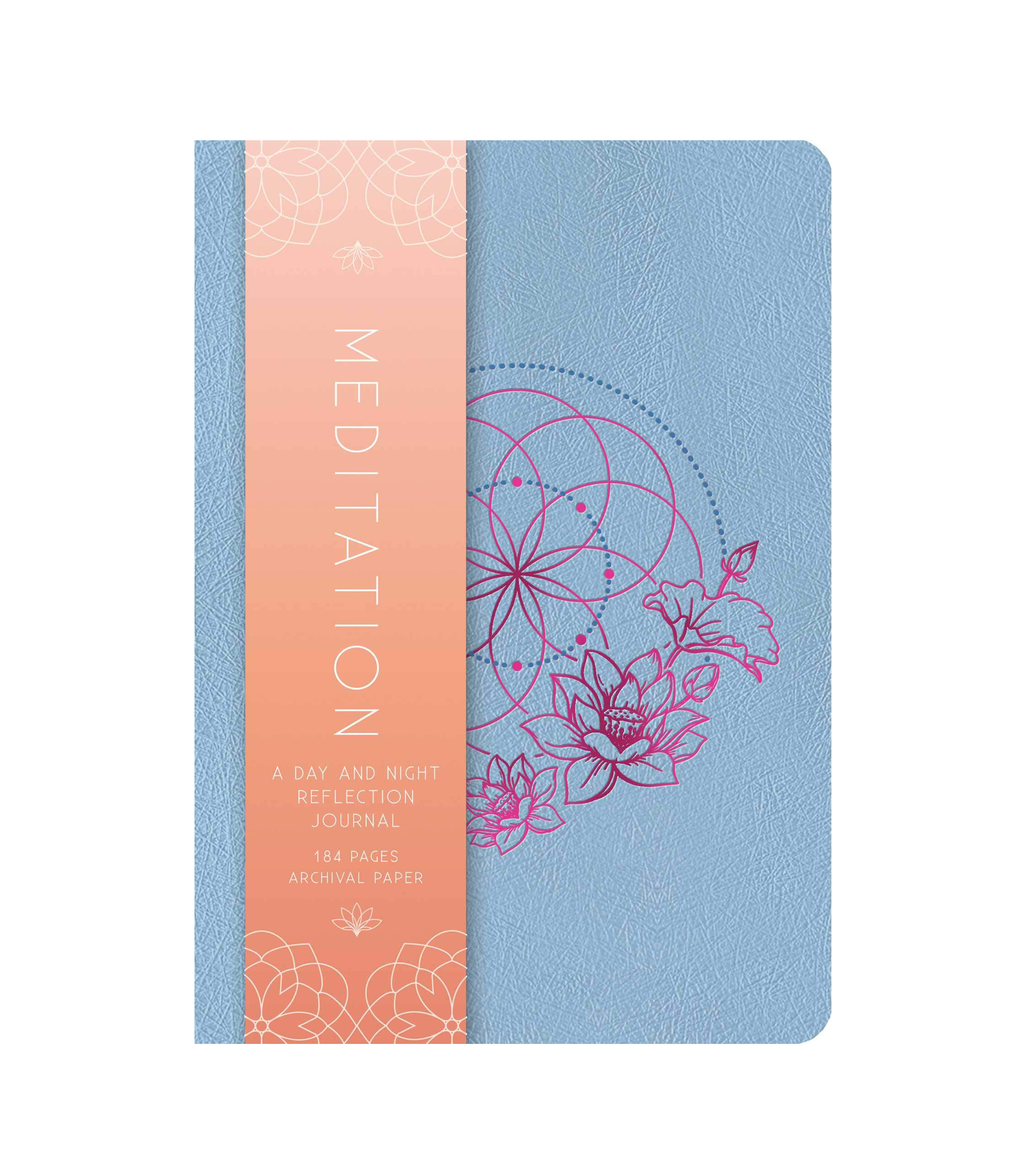12 Things to Try If You Want to Meditate But Don't Know Where to Start
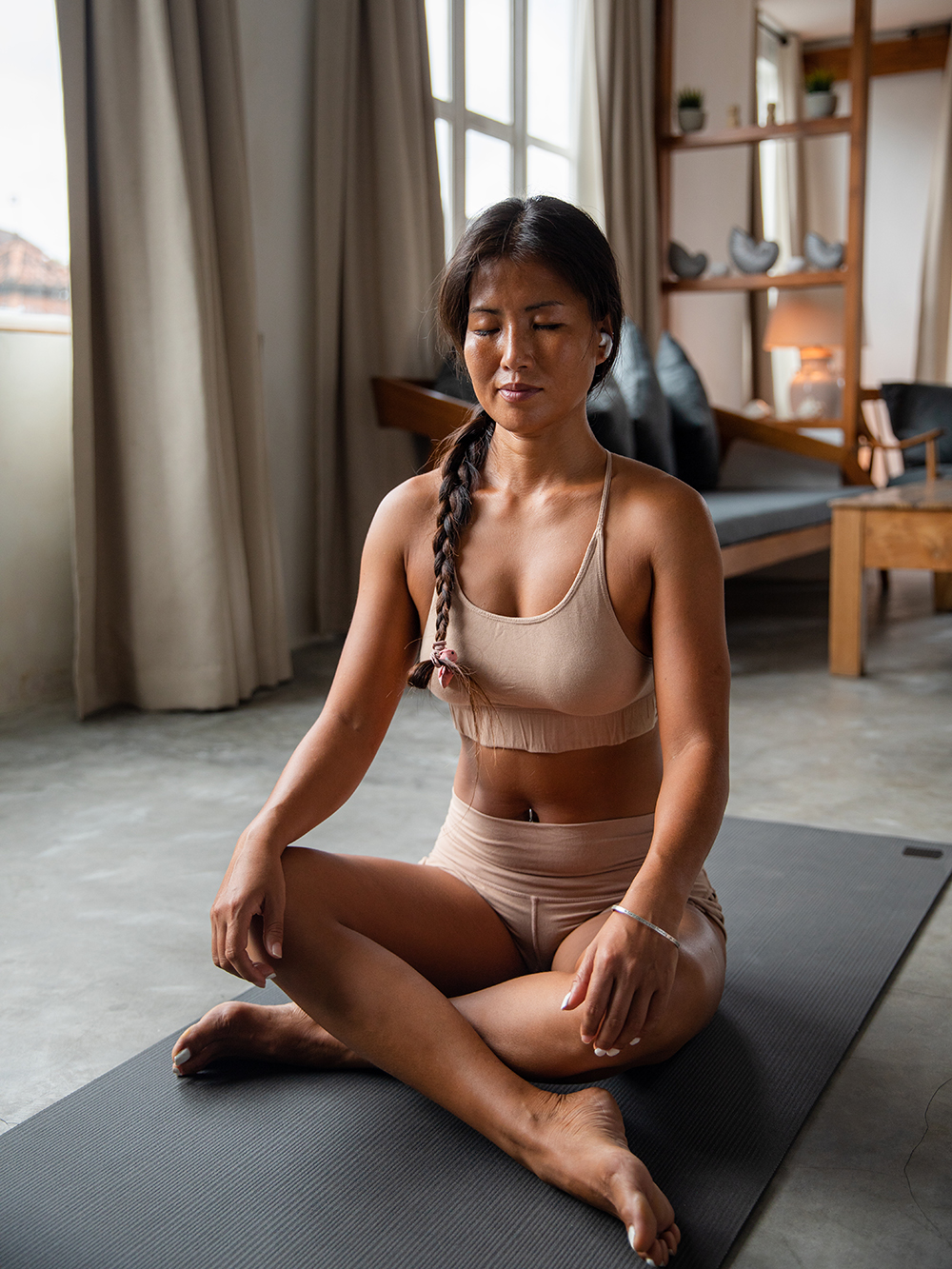
Meditation is a well-known tool for mental health and well-being. But it can be intimidating. I know for me, I had always been wary of it because I don't think I can sit still and focus. Whenever I used to try to meditate, my mind would wander, and I would be thinking about my to-do list, what I needed to buy at the grocery store, a conversation I had with my friend the week before, an upcoming work meeting, etc. I'm trying to get better at it and attempt to do a meditation a few times a week, but by no means am I an expert at all. I always feel much better after a session, but I know I can be doing more for the practice in order to reap the full benefits.
If you're a meditation newbie too, I've got you. I asked some experts for their best meditation tips for beginners, which we'll go over below. But first, it helps to understand what meditation is exactly. "In the simplest terms, meditation means concentration," says Samantha Snowden, a mindfulness and meditation teacher at Headspace. "When we are meditating, we are directing our attention to something in particular on purpose. In mindfulness meditation, we often use our breath, body sensations, or sounds as our attentional anchor or object of meditation."
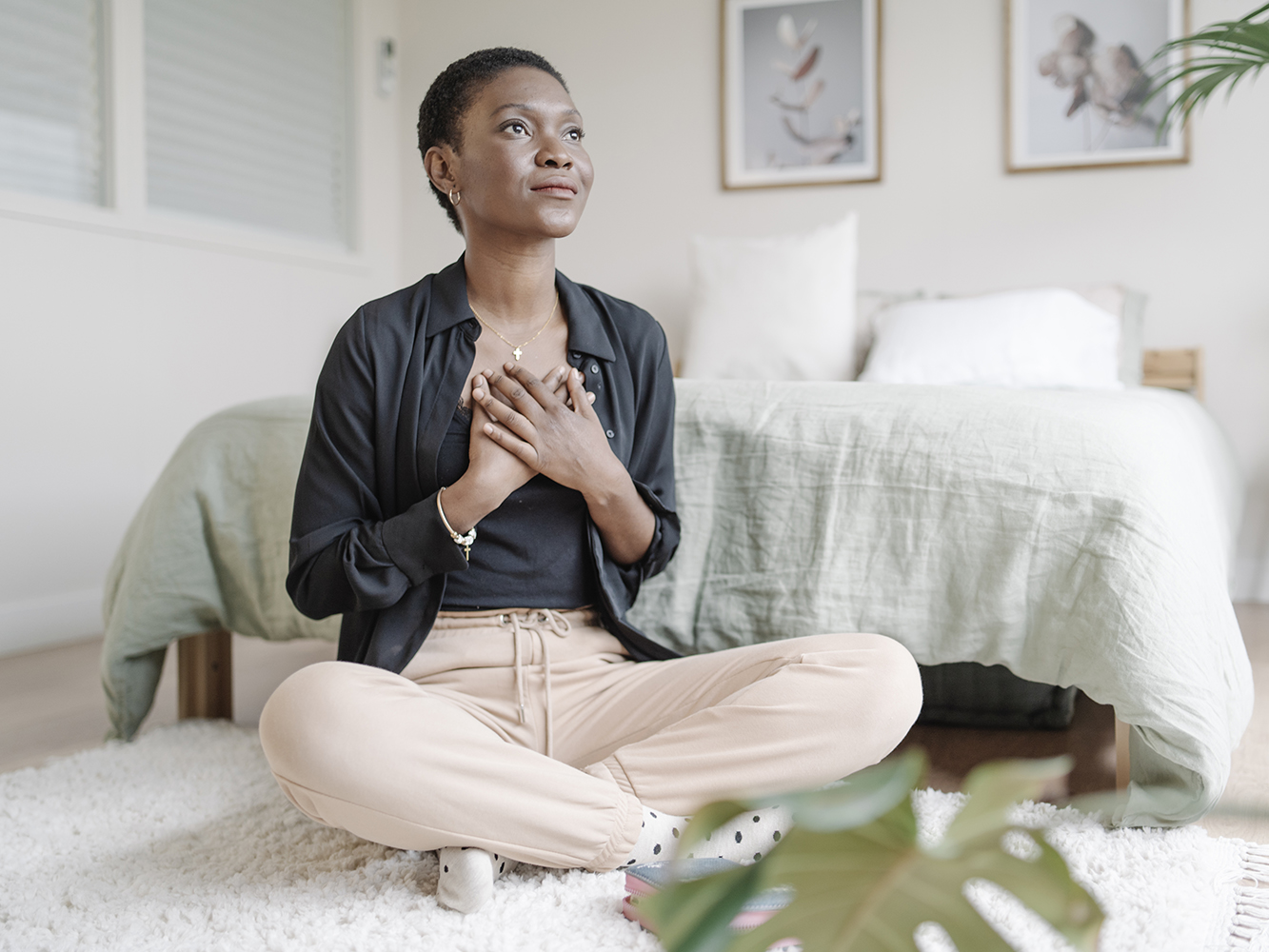
There's also no one way to practice meditation. "There are numerous styles and methods of meditation, and many of them have shared characteristics," explains Ross Rayburn, a Peloton instructor. "Where they usually differ is in intention and philosophical precepts."
For example, Snowden says there are meditations aimed at increasing focus and others that are focused on eliciting feelings of compassion, empathy, and joy. Meditation will incorporate an anchor, such as the breath, so you know when your attention has drifted away, and you can be aware and strengthen your capacity to be more mindful. And meditation centered on cultivating empathy and goodwill might involve thinking of someone you love and sending them kind wishes. "All forms of mindful meditation involve core attitudes that assist us in developing a kind relationship with our inner and outer experiences. These attitudes include acceptance, gentleness, curiosity, and openness," Snowden explains. "When we sit down to meditate, we remember these attitudes and apply them to what arises in our practice be they difficult thoughts, memories, or passing sounds."
Common Misconceptions About Meditation

And before you start your practice, it might be helpful to get some common misconceptions about meditation out of the way. That way, you can go into it with a better mindset. The experts shared some with us below.
It's All About Stopping Thoughts: "The most common misconception I hear is that people assume they cannot meditate because they think meditation means clearing your mind of thoughts," says Jade Weston, senior producer at Ten Percent Happier. "That's not what meditation is. Meditation is not about getting rid of thoughts. Instead, it's about changing the way we relate to our thoughts. Normally, our discursive mind is running the show, and we're not even aware of it. When we see our mind's processes clearly, it gives us the perspective we need to act intentionally in our lives, rather than just being in reaction mode all the time."
It's About Achieving a Certain State of Mind: Snowden says many people go into meditation with an agenda, like maybe they want to experience something profound or have an aha moment. It may be natural and helpful to have a reason to start meditating, but Snowden says it can be unhelpful to be too attached to it. "Maybe it's the desire to relieve anxiety, stress, or a yearning to connect with yourself. When we sit down to meditate, though, we let the agenda go," Snowden says. "We can remember our motivation to practice, to inspire us, but when we sit, we are being with things just as they are, bringing openness, curiosity, and kindness to what shows up."
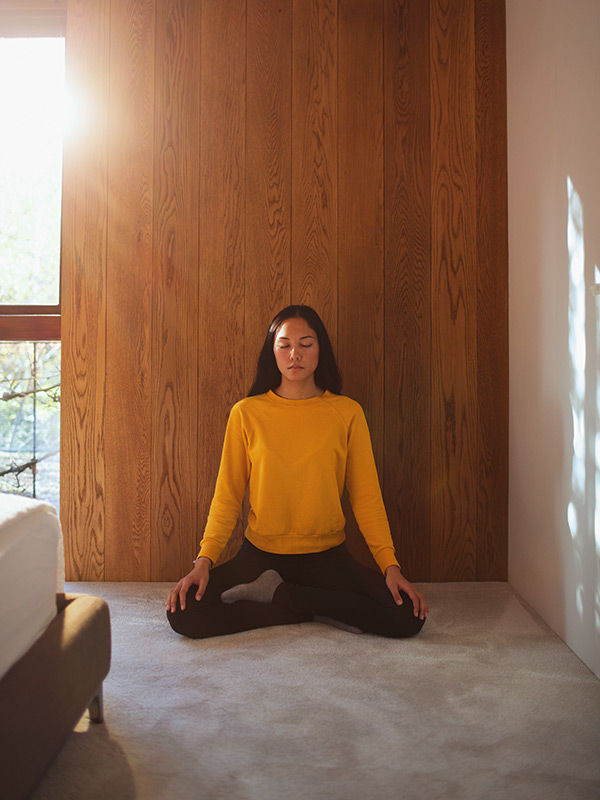
There Is "Good" and "Bad" Meditation: "There is no 'bad' meditation," Rayburn says. "There are frustrating ones, and no doubt, some people meditate more easily and naturally than others. But I subscribe to the belief that (in the long term) you cannot go wrong by spending any amount of time turning inside with awareness."
Now that we've got those common misconceptions out of the way, it's time to get started, so here are some tips for beginners.
Meditation Tips for Beginners
1. Start With a No-Fail Premise
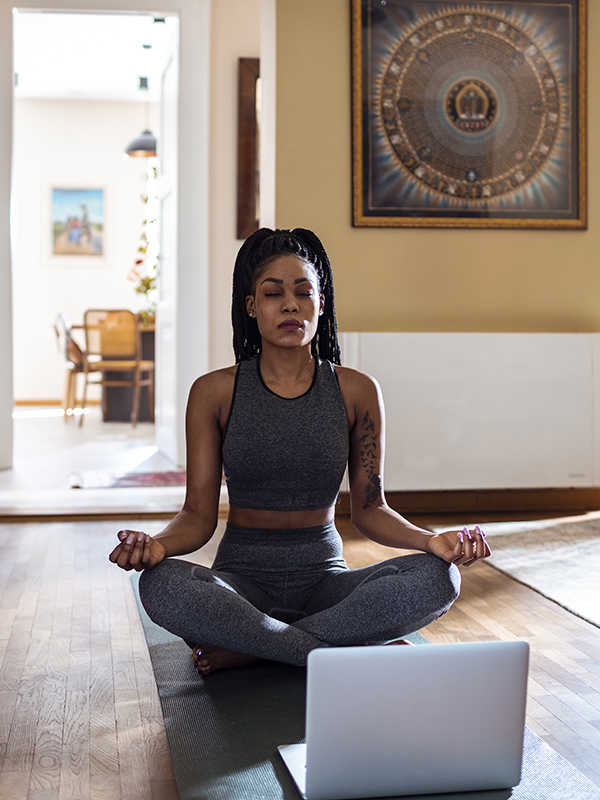
Don't go into it thinking you're going to be bad at it. Rayburn says to go into it with the idea that you can't fail. "You might not feel great every time, but sometimes you will," he says. "But at the very least, every meditation is a seed planted for what's to come."
2. Find a Qualified Guide or Guides
Working with a professional can help. "This means that they've practiced and studied deeply within a tradition—meaning they themselves have had teachers," Weston says. "I generally do not recommend studying meditation with someone who has made up their own teachings or claims to have received wisdom as though they were hit by a lightning bolt. Meditative wisdom has been cultivated, refined, and handed down within Buddhist and other wisdom traditions for thousands of years, and many of these teachings are now being translated and made available in secular contexts (such as what we offer through Ten Percent), so there are many trustworthy guides to help you get started. Just do your research."
3. Focus on a Short, Daily Practice

Snowden recommends starting with focusing on daily practice for shorter periods instead of less-frequent long sittings. You can do shorter periods of sitting for around five to 10 minutes. Rayburn also suggests even trying small awareness exercises like three taking breaths and pausing before brushing your teeth or pausing after a run to note how you feel.
4. Be Comfortable
"Yes, learning how to sit rigidly through fidgets needs to be done once you're meditating regularly. But to get into a habit of meditating, make your meditation environment comfortable," Rayburn says. "Sit at a wall for your back. Sit in a chair or a sofa (with the best posture you can). Maybe even lie down. Use pillows and blankets to support your knees and arms. Oh, and if possible, find a quiet place. It's not needed, but it can help."
5. Don't Be Too Rigid

Snowden says one common mistake beginners make is becoming too rigid or applying too much effort or strain to the practice. "Whatever tone we're using to greet our inner experience is what is being reinforced in meditation," she explains. "So if our tone is critical and forceful, we may be encouraging states of mind that we came to meditation to address in the first place. When beginning your meditation, imagine you are sitting down to listen to a dear friend. Invite a tone of receptivity and non-striving, allowing whatever arises to be there just as it is." Bottom line: Be gentle and kind to yourself.
6. Create a Ritual
"Our brains and emotions recognize ceremony and ritual as significant, which can lead to both the impact and the frequency of your practice," Rayburn says. "When I started (and hated meditation), my teacher suggested I shower before and light a candle to sit in front of me. It worked!"
7. Study Meditation
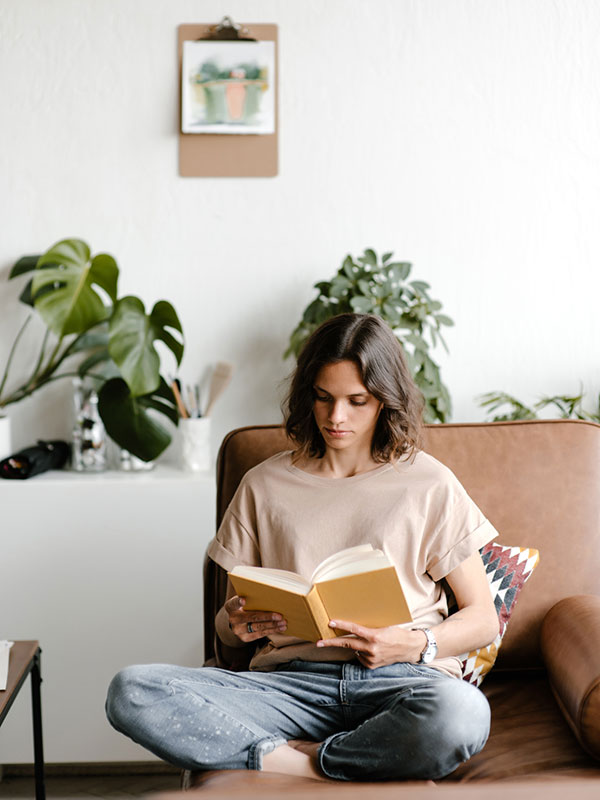
"Studying meditation (in addition to actually meditating) will be a huge support to your practice," Weston says. "Remember that even if the practice feels unfamiliar or hard at first, over time you will become more skilled at looking at your own mind and understanding where you get stuck and the direction you want to grow. Seeking out teachings—whether in books, talks by teachers online or in person, or in an app like Ten Percent—will help you better understand what you're doing and how to stay inspired."
8. Expect Obstacles
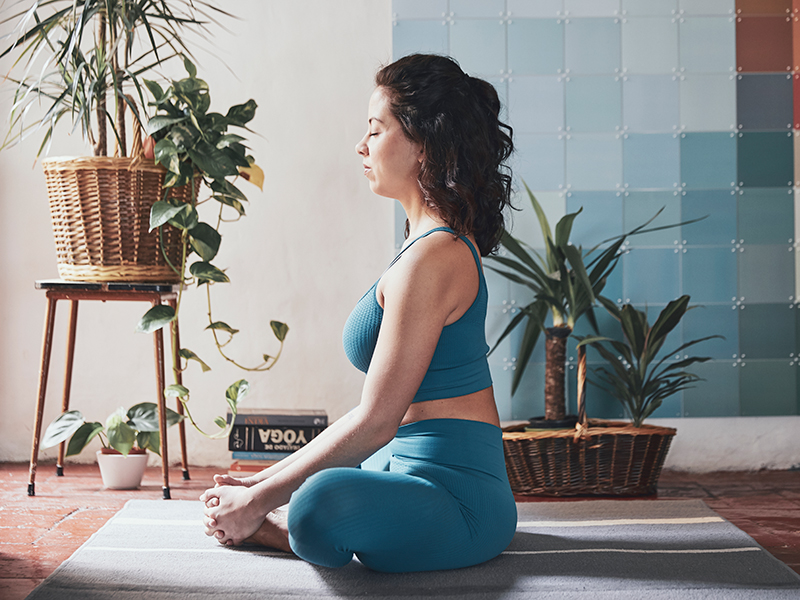
It will be helpful to keep in mind that obstacles are part of the practice, Snowden says. "You may experience doubt, wondering why you're doing this at all, or feeling defeated at times," she adds. "You may also feel sleepy, restless, and distracted, having thoughts like 'I can't do this,' or 'I'm not a meditator.' These thoughts and experiences are totally normal. See if you can apply the same acceptance, openness, and curiosity to these thoughts, relating to them as if they were any other more neutral thoughts like, 'I wonder what I'll have for lunch.'"
9. Find a Community or a Buddy
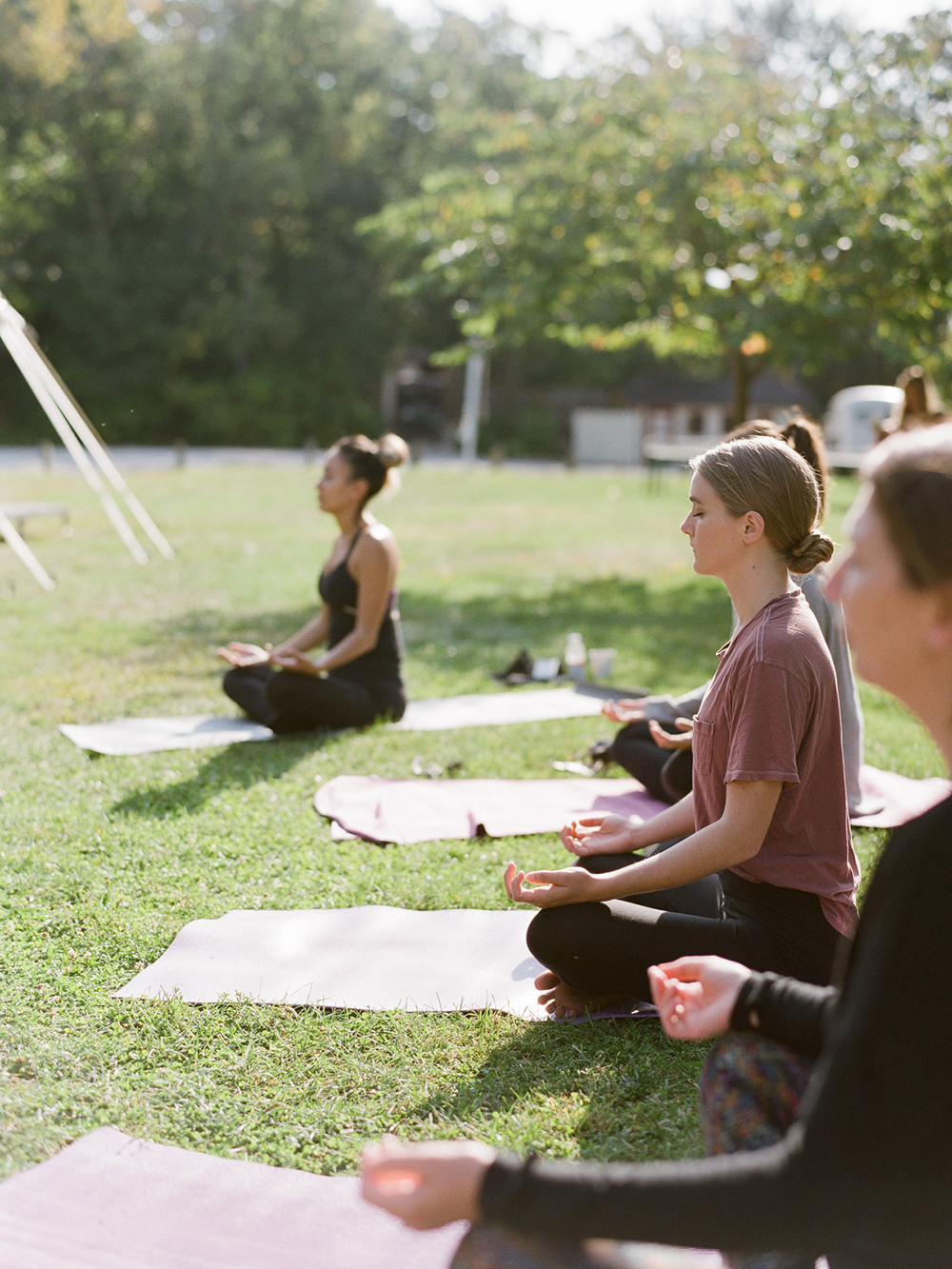
Weston says the practice can be challenging, so having support can help you when you're going through rough patches or having trouble with it. "Find a meditation community near you, start a meditation book club, or connect with one of the many online communities of practitioners supporting each other from afar," she suggests.
10. Set Up a Challenge
Snowden recommends setting up a 10-, 20-, or 30-day challenge for yourself—a certain number of days you'll practice daily to build the habit.
11. Be Kind to and Thank Yourself
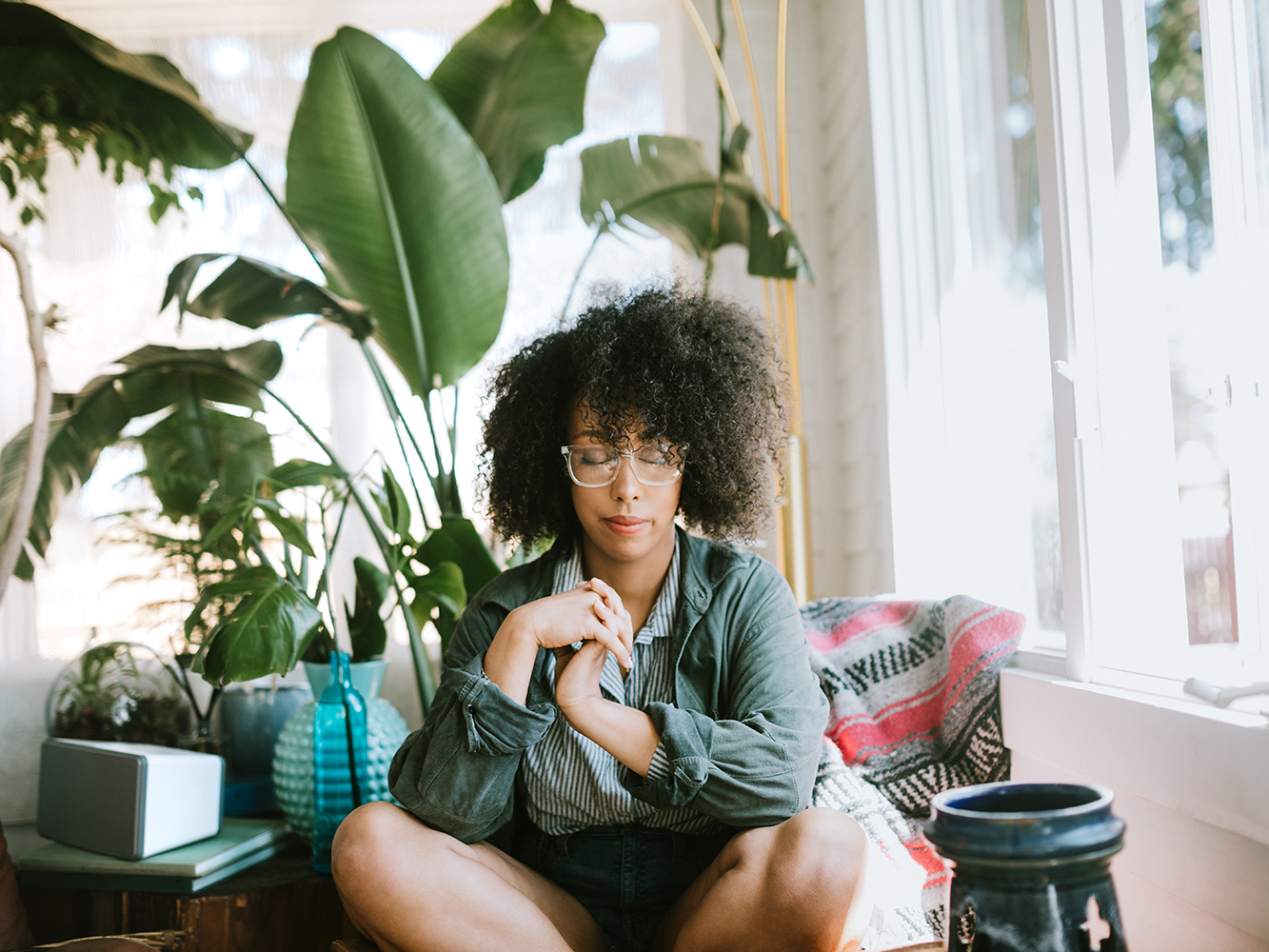
It's important to be kind to yourself as you're going through the practice. "Meditation is not a silver bullet. It takes time, patience, and diligence to make friends with your own mind," Weston says. "But once you start on this path, you will realize it has the greatest potential to give you back your life. Once you see this, it will feel like a no-brainer to keep going. In the meantime, go easy on yourself and try to have a sense of humor about your foibles."
And Snowden suggests thanking yourself and remembering the benefits of the practice at the end of your meditation practice.
12. Don't Give Up Too Quickly
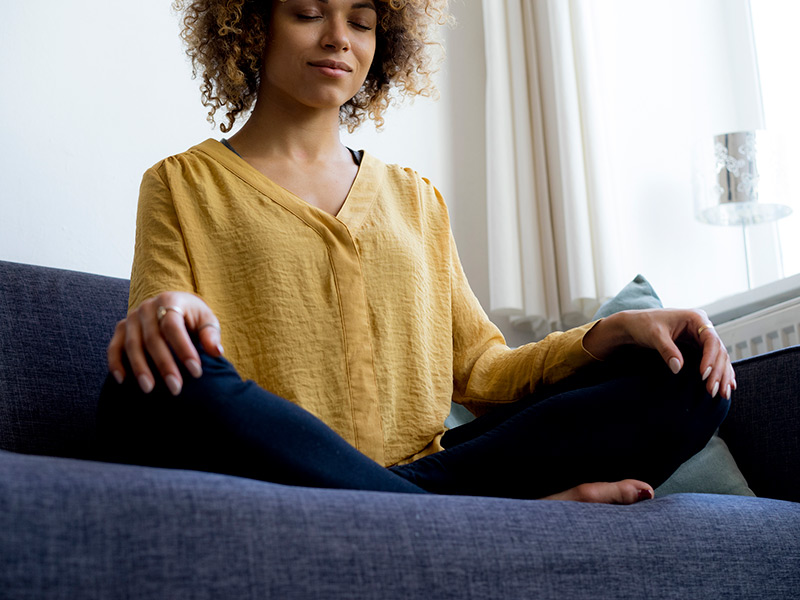
Weston says a common mistake she thinks people make is giving up too quickly. Keep in mind that it takes time and practice to change our relationship with our own minds, but it's worth it.
You'll want to give yourself enough time to explore a meditation practice before giving up or switching to something else. "Meditation is a very intimate act. You are turning toward your most vulnerable thoughts, feelings, memories, fears, and hopes," explains Snowden. "So there is an adjustment period where you are just getting used to this depth of intimacy. That's why it's so important to be gentle with yourself. And it's not always the right time to start a meditation practice. If you've experienced a recent trauma or have traumatic memories resurfacing, it may be advisable to work with a mental health provider to work through what's arising instead of taking it on yourself. I find it helpful to keep a practice journal to record insights, emotions, and other discoveries from your practice. As you practice, you will get a better sense of what you're needing and wanting, and you may be inspired to branch out to other heart-centered or visualization-based practices."
Next, I Meditated Every Day for a Month—This Is Why You Should Try It Too
This article is provided for informational purposes only and is not intended to be used in the place of advice of your physician or other medical professionals. You should always consult with your doctor or healthcare provider first with any health-related questions.
Sarah is lifestyle writer and editor with over 10 years of experience covering health and wellness, interior design, food, beauty, and tech. Born and raised in Los Angeles, she attended New York University and lived in New York for 12 years before returning to L.A. in 2019. In addition to her work at Who What Wear, she held editor roles at Apartment Therapy, Real Simple, House Beautiful, Elle Decor, and The Bump (sister site of The Knot). She has a passion for health and wellness, but she especially loves writing about mental health. Her self-care routine consists of five things: a good workout, “me” time on the regular, an intriguing book/podcast/playlist to unwind after a long day, naps, and decorating her home.
